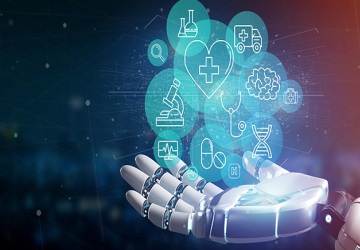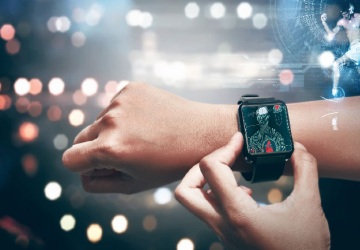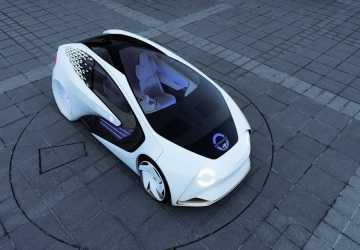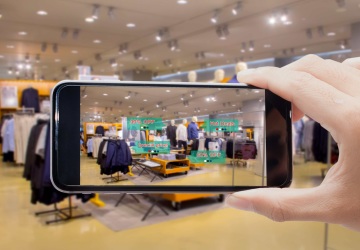The nexus of healthcare and technology has ushered in an era of groundbreaking advancements centered on the augmentation of patient care. Central to this transformation is AI (Artificial Intelligence) and machine learning, which is relentlessly driving the revolution known as personalized healthcare. This deep dive explores these technologies' multifaceted roles in tailoring healthcare to individual needs.
1.The Confluence of AI and Healthcare
AI and machine learning are redefining healthcare delivery paradigms at the intersection of technology and medicine. No longer constrained by generic treatment methods, the medical field now possesses tools capable of creating bespoke solutions tailored to individual patients. The underpinnings of this transformation lie in the vast datasets and the profound learning capabilities of AI.

2.Diagnostic Precision and Predictive Analysis
One of the most significant contributions of AI and machine learning to personalized healthcare is their unparalleled accuracy in diagnostics. By analyzing vast amounts of data from imaging, genomics, and electronic health records, AI systems can identify intricate patterns invisible to the human eye. This precision allows for the early detection of conditions, sometimes even before symptoms manifest, paving the way for timely and individualized interventions.
3.Drug Discovery and Personalized Treatment
The path to drug discovery and development, traditionally long and arduous, is being expedited by AI. Machine learning algorithms sift through countless molecular structures, predicting their potential therapeutic benefits. Beyond discovery, AI also tailors drug regimens to patients, accounting for genetic variations and ensuring optimal efficacy with minimal side effects. Patients no longer receive a one-size-fits-all treatment but a regimen specifically designed for their unique genetic makeup.
4.Wearables and Real-time Monitoring
Wearable devices imbued with AI and machine learning capabilities have become game-changers in personalized healthcare. These gadgets continuously collect data, from heart rate fluctuations to sleep patterns, and utilize AI to analyze and provide real-time feedback. Such consistent monitoring allows for immediate interventions, making preventive care a tangible reality for many.

5.Virtual Health Assistants
AI-driven virtual assistants are rapidly becoming invaluable companions in the healthcare journey. They offer personalized advice, medication reminders, and even psychological support. By analyzing a user's health data and past interactions, these assistants cater their responses to the specific needs and emotions of the patient, ensuring an empathetic and tailored approach to care.
6.Enhancing Patient Experience
Personalized healthcare isn't just about treatments and diagnostics; it's also about the overall patient experience. AI-driven systems can predict patient needs, streamline appointment scheduling, and reduce waiting times. By analyzing feedback and past interactions, healthcare providers can enhance patient engagement, making visits more productive and less daunting.
7.Genomic Medicine and Tailored Therapies
Genomics, coupled with AI and machine learning, is revolutionizing medicine. AI algorithms analyze vast genomic datasets, identifying variations linked to diseases and potential therapeutic responses. Such insights are pivotal for personalized healthcare, as they allow for therapies tailored to a patient's unique genetic landscape, ensuring greater efficacy and minimized adverse effects.
8.Continuous Medical Education and Training
The field of medicine is also resistant to the wonders of artificial intelligence. For medical professionals, machine learning algorithms provide tailored learning pathways, ensuring they are constantly updated with their specializations' most recent developments. AI creates individualized instructional content by monitoring individual performance and areas of interest, which encourages continual growth and adaptability in a subject constantly changing.
9.Ethical Implications and Personal Data Security
While AI and machine learning offer many benefits in personalized healthcare, they also usher in ethical and security concerns. They are raising concerns about bias and representation. Moreover, the storage and analysis of personal health data necessitate robust security protocols to prevent breaches and unauthorized access.
10.The Road Ahead: Challenges and Opportunities
The future of personalized healthcare with AI and machine learning is undeniably promising but has challenges. Data privacy, integration of AI in traditional healthcare workflows, and ensuring equitable access to these advanced solutions are just a few hurdles on the horizon. However, as technology evolves and integrates deeper into healthcare, the potential for a global transformation in how we perceive and receive medical care becomes palpable.
The AI-Driven Revolution in Medical Imaging
Medical imaging, from MRIs to X-rays, has been fundamental in diagnostics. However, these imaging techniques have been elevated with the surge of AI and machine learning. Today's AI-enhanced tools can meticulously scan images for the minutest anomalies which human eyes could easily overlook. For instance, tumors in their nascent stages or minor vascular abnormalities that are precursors to significant health issues can be detected early. This early detection means more effective treatments, often with less invasive procedures and better patient outcomes.
AI in Remote Patient Monitoring
The pandemic underscored the importance of remote healthcare services. AI and machine learning have been at the forefront of this transformation. AI-powered remote monitoring tools have been life-changing for patients in remote areas or those unable to visit medical facilities regularly. Health metrics are continuously sent to cloud platforms using sensors and IoT devices, where AI algorithms monitor and flag any abnormalities. This ensures that even if the patient is miles away from a healthcare facility, they're still under the vigilant watch of medical professionals.
Streamlining Administrative Tasks
While the focus often remains on the clinical applications of AI and machine learning, one must recognize their contributions to streamlining administrative tasks in healthcare. Hospital administrations often grapple with vast amounts of data, from patient histories to billing. AI tools are now adept at handling such charges, reducing human errors, ensuring efficient patient flow, optimizing appointment schedules, and predicting patient no-shows. This not only results in economic efficiency but also elevates the patient experience.
Conclusion
The marriage of AI and machine learning with healthcare is a testament to humanity's relentless pursuit of betterment. As these technologies permeate personalized healthcare, we stand on the cusp of a revolution where every individual's health needs are addressed with precision, empathy, and foresight. As with any transformative journey, challenges abound, but the promise of a healthier, more attuned world makes the voyage worth undertaking.

















